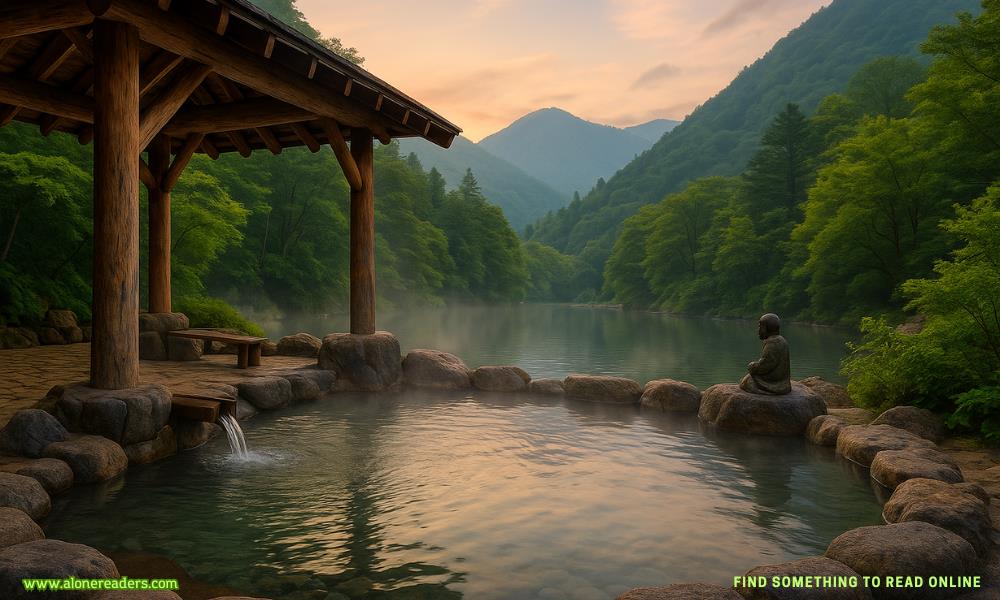Page 14 of Strangers She Knows
“We don’t have bikes on the island,” Kellen said loftily.
“Yes, we do.” Max sounded surprised. “I ordered them and had them sent here. How else are we going to get around?”
It’s a mostly deserted island. Why do we have to get around?But even Kellen knew that was a foolish question; they couldn’t stay in cooped up and wait for the moment Mara Philippi was apprehended—or, as Kellen feared, descended on them. She said, “Riding bikes on this island won’t be like biking in the mountains. Right?”
From her first moment on a bike, Rae had craved speed and loved the abrupt descents and jumps involved with mountain biking, and she wasn’t even teasing when she said, “From what I’ve seen of the island, starting at the house and cycling downhill to the other end will probably involve speeds up to—”
This time Max whipped around and glared.
“Probably not more than thirty miles per hour.” Rae obviously thought she was offering encouragement to her mother.
Kellen couldn’t imagine traveling the rugged, bumpy paths of the island on a bike at thirty miles an hour. Or rather—she could. And it scared her to death.
Max faced forward. “We’ll take you out on the boat. Kellen, you’ll love it!”
“Isn’t that a two-man boat?” Kellen was almost sure it was.
“If we leave off the motor, it’s a three-man boat,” Max answered.
“Three very small men,” Kellen said.
“I’m the only man.” He puffed out his chest. “You two are itty-bitty feminine bits of fluff.”
“Daddy, you’re a misogynist.” Rae sounded disgusted.
“Maybe so. But I bought the boat.” Max changed course and headed west, toward the peak of the island.
There a tall house rose. Built in the 1920s, ornate, painted in firm tones of blue and brown with scarlet accents, it was the epitome of a rich man’s ostentatious home, a sprawling French chateau with a mansard roof, iron lace trim and a madness of windows and doors and shrubs. A widow’s walk, surrounded by all that black iron trim, rose at the highest point.
The land around the house was an emerald blanket of shorn lawn and well-watered shrubs. A dozen massive live oaks spread their protective branches over the property. Abruptly, where the irrigation stopped, green ended and native yellow grasses took over the land. A few outbuildings, garages or sheds, stood off to one side with their foundations straddling the green/gold line. An incongruous bank of solar panels covered the roof of the largest building.
“I like it.” Rae’s voice sounded bemused. “It’s so…lonely.”
“It’s not too bad,” Max said. “Not too lonely. We’ve got each other.”
The size of the place floored Kellen. “I wasn’t expecting a mansion. Not out here. Who lived there?”
“The house is named Morgade Hall after the family who lived in it,” Max told them. “Gerard Morgade was a newspaperman in the early part of the twentieth century. He made a fortune in the business—”
“As a writer?” Kellen could hardly believe that.
“Owner. Probably insider trading. Blackmail. He had a reputation as a ruthless businessman, universally loathed. He bought the island, hired a contractor who built the house using a fleet of boats and scores of workers, and moved his family here. The lack of anchorage kept them isolated while he traveled between the island and the mainland on his yacht. In the fifties, he died here, the last of his family.”
“His wife?”
“Died in 1948.”
“He had no children?”
“Four or five kids. None survived the forties. I know the oldest daughter got murdered by her husband in, I think, 1949.”
Kellen glared at him. Rae knew about Kellen’s first husband, about the abuse she’d suffered, and because of that, Rae worried about her mother and women in general.
He must have realized what he’d said, for he quickly continued, “People died earlier in those days. There’s a cemetery not far from the house.” He flew them west and showed them the small fenced and overgrown graveyard. “Living on this island, they might not have gotten the medical attention they needed when they were hurt or ill. Or maybe it was the war.”
“Why couldn’t they fly to the mainland?” Rae asked.
“Helicopters came into their own in the 1950s, so if there was a storm and their yacht couldn’t put to sea, they had to stay put.” Max glanced back at Rae. “In fact, that’s still a problem. Northern California has its share of big storms, mostly in the winter, but wecouldget stuck here.”
- Cinderella and the Outback Billionaire by Kelly Hunter
- Beautiful Venom by Rina Kent
- Connor by Samantha Skye
- Mated by Jenika Snow
- Daddy by J.L. Quick
- Fetch by M. Violet
- Loving My Brother's Best Friend by Lena Little
- Hot Cops by Mari Carr
- The CEO by Alexis Winter
- Phixmery by S.E. Alexander
- Veil of Smoke by Sarah Sterling
- Veil of Ashes by Sarah Sterling
- Giovanni the Savage by Sarah Sterling
- Summer Love by Lea Coll
- Sullied Saints by Eva Heart
- Stalked by Leo Rivers







